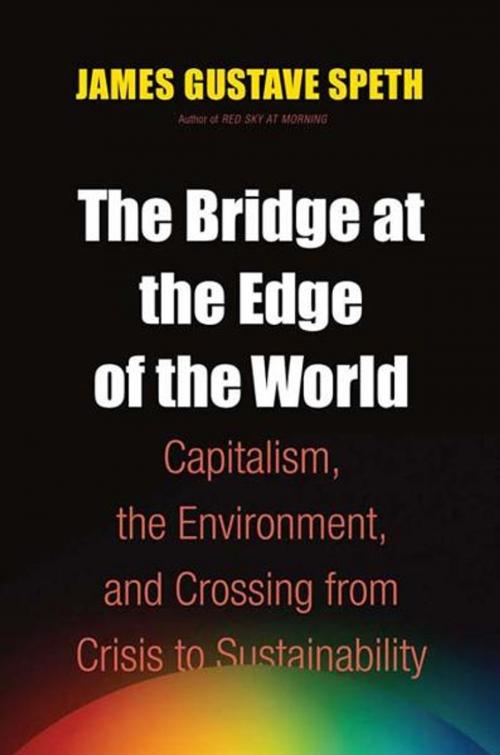The Bridge at the Edge of the World: Capitalism, the Environment, and Crossing from Crisis to Sustainability
Business & Finance, Business Reference, Government & Business, Nonfiction, Science & Nature, Nature, Environment, Environmental Conservation & Protection| Author: | Professor James Gustave Speth | ISBN: | 9780300145304 |
| Publisher: | Yale University Press | Publication: | October 1, 2008 |
| Imprint: | Yale University Press | Language: | English |
| Author: | Professor James Gustave Speth |
| ISBN: | 9780300145304 |
| Publisher: | Yale University Press |
| Publication: | October 1, 2008 |
| Imprint: | Yale University Press |
| Language: | English |
How serious are the threats to our environment? Here is one measure of the problem: if we continue to do exactly what we are doing, with no growth in the human population or the world economy, the world in the latter part of this century will be unfit to live in. Of course human activities are not holding at current levels-they are accelerating, dramatically-and so, too, is the pace of climate disruption, biotic impoverishment, and toxification. In this book Gus Speth, author of Red Sky at Morning and a widely respected environmentalist, begins with the observation that the environmental community has grown in strength and sophistication, but the environment has continued to decline, to the point that we are now at the edge of catastrophe.
Speth contends that this situation is a severe indictment of the economic and political system we call modern capitalism. Our vital task is now to change the operating instructions for today's destructive world economy before it is too late. The book is about how to do that.
How serious are the threats to our environment? Here is one measure of the problem: if we continue to do exactly what we are doing, with no growth in the human population or the world economy, the world in the latter part of this century will be unfit to live in. Of course human activities are not holding at current levels-they are accelerating, dramatically-and so, too, is the pace of climate disruption, biotic impoverishment, and toxification. In this book Gus Speth, author of Red Sky at Morning and a widely respected environmentalist, begins with the observation that the environmental community has grown in strength and sophistication, but the environment has continued to decline, to the point that we are now at the edge of catastrophe.
Speth contends that this situation is a severe indictment of the economic and political system we call modern capitalism. Our vital task is now to change the operating instructions for today's destructive world economy before it is too late. The book is about how to do that.















